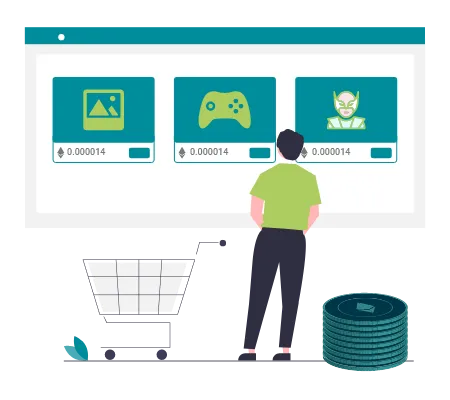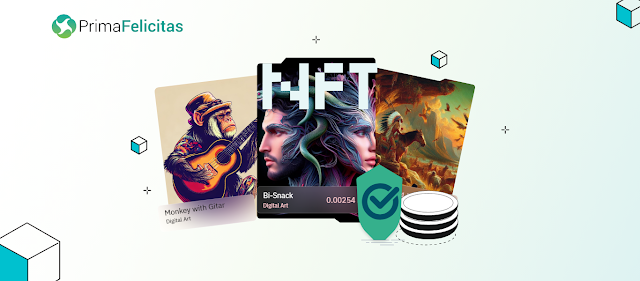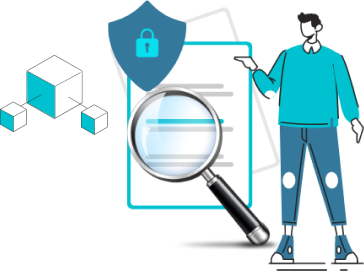The Ultimate Guide to NFT Marketplace Software Development
Explore the world of NFT marketplace software development with our comprehensive guide, designed to help you navigate the complexities of this rapidly growing industry. From understanding the basics of NFTs to learning how to build and launch your own NFT marketplace platform, this guide covers it all.
Discover the latest trends and best practices in NFT marketplace software development, including tips on how to create a seamless user experience, integrate secure payment gateways, and implement smart contract functionality. Whether you're a seasoned developer or a newcomer to the world of NFTs, this guide has something for everyone.
Dive into the technical aspects of NFT marketplace software development, with in-depth discussions on blockchain technology, decentralized storage solutions, and interoperability standards. Learn how to leverage these tools to create a robust and scalable NFT marketplace that can support a wide range of digital assets.
Understanding NFT Marketplace Software Development
NFT marketplace software development is a complex process that involves creating an online platform where users can buy, sell, and trade non-fungible tokens (NFTs). NFTs are unique digital assets that are stored on a blockchain, making them secure and easily verifiable.
To understand NFT marketplace software development, it is important to grasp the concept of NFTs. Unlike cryptocurrencies such as Bitcoin or Ethereum, which are fungible and can be exchanged on a one-to-one basis, NFTs represent ownership of a specific item or piece of content. This can include digital art, collectibles, music, virtual real estate, and more.
The process of developing NFT marketplace software involves several key steps. First, you need to define the requirements of your marketplace, such as the type of NFTs you want to support, the features you want to include, and the target audience you want to attract. Next, you will need to design the user interface and user experience of your marketplace, ensuring it is intuitive and easy to navigate.
This involves coding the back-end infrastructure of the marketplace, which includes the smart contracts that govern the creation, ownership, and transfer of NFTs. Security is a crucial aspect of NFT marketplace software development, as it involves handling valuable digital assets and sensitive user information.
Testing is another important step in NFT marketplace software development. It is essential to thoroughly test the functionality, performance, and security of the marketplace before launching it to the public. This includes testing for vulnerabilities, conducting stress tests, and ensuring compatibility with different devices and browsers.
Finally, once the NFT marketplace software is developed and tested, it can be deployed and launched to the public. Ongoing maintenance and updates are also necessary to ensure the marketplace remains secure and up-to-date with the latest technologies and trends in the NFT space.
With the right knowledge and expertise, you can create a successful NFT marketplace that provides value to both creators and collectors in the digital art and collectibles space.
Key Features of NFT Marketplace Software
When developing NFT marketplace software, it is important to consider the key features that will make your platform stand out and attract users. Here are some essential features to include in your NFT marketplace:
1. User-friendly Interface: A user-friendly interface is crucial for attracting and retaining users. Make sure your marketplace is intuitive, visually appealing, and easy to navigate.
2. NFT Creation and Minting: Your marketplace should allow users to create and mint their NFTs.
3. Buying and Selling: The primary function of an NFT marketplace is to facilitate the buying and selling of NFTs. Ensure your platform supports smooth and secure transactions, including bidding and instant purchases.
4. Wallet Integration: Integrating a wallet solution allows users to securely store, manage, and transfer their NFTs. Consider partnering with popular wallet providers or developing your own wallet solution.
5. Royalty Mechanism: Implementing a royalty mechanism ensures that creators receive a percentage of the proceeds each time their NFT is resold on the marketplace. This incentivizes artists to create and allows them to benefit from the increasing value of their work.
6. Community and Social Features: Building a strong community around your NFT marketplace is essential for long-term success. Include social features such as user profiles, follows, likes, comments, and the ability to join groups or communities.
7. Scalability and Performance: As the popularity of NFTs continues to grow, it is crucial to build a scalable and high-performance marketplace that can handle increased user traffic and transaction volume.
By incorporating these key features into your NFT marketplace software, you can create a platform that offers a seamless and engaging experience for users, while also empowering artists and creators in the NFT space.
Finding the Perfect NFT Marketplace Development Company
Choosing the right NFT marketplace development company is crucial for the success of your project. Here are some factors to consider when selecting a development partner:
1. Experience and Expertise: Look for a company that has extensive experience in developing NFT marketplaces and a deep understanding of blockchain technology. They should have a portfolio of successful projects and a team of skilled developers.
2. Customizability: Each NFT marketplace is unique, so it is important to work with a development company that offers customization options. They should be able to tailor the software to meet your specific requirements and branding.
3. Security and Compliance: NFT marketplaces deal with valuable digital assets and sensitive user information, so security should be a top priority. Ensure that the development company follows best practices for security and compliance with relevant regulations.
4. Ongoing Support and Maintenance: Building an NFT marketplace is an ongoing process, and you will need support and maintenance services even after the initial development is complete. Choose a company that offers reliable support and maintenance to keep your marketplace running smoothly.
5. Reputation and Reviews: Do your research and check the reputation and reviews of the development company. Look for testimonials from previous clients and see if they have received positive feedback for their work.
By considering these factors and conducting thorough research, you can choose the right NFT marketplace development company that aligns with your goals and vision.
PrimaFelicitas is a leading expert in NFT marketplace development, specializing in creating advanced and user-friendly platforms for the purchase, sale, and exchange of non-fungible tokens. Their experienced team of developers and designers ensures that every marketplace they produce is customized to fulfill their client's requirements, offering a secure and smooth experience for all participants.
Whether you are a startup looking to enter the NFT space or an established company wanting to enhance your existing marketplace, PrimaFelicitas has the expertise and resources to bring your vision to life. With a focus on innovation and customer satisfaction, PrimaFelicitas is the right choice for anyone looking to develop a successful NFT marketplace.
Future Trends in NFT Marketplace Software
The NFT marketplace landscape is constantly evolving, and it is important to stay updated with the latest trends and innovations. Here are some future trends to watch out for in NFT marketplace software development:
1. Cross-Chain Compatibility: Currently, most NFT marketplaces are built on a single blockchain network, such as Ethereum. However, there is a growing trend towards cross-chain compatibility, allowing NFTs to be exchanged between different blockchain networks.
2. Fractional Ownership: Fractional ownership opens up the opportunity for many people to own a piece of an NFT, making it easier and more affordable for a larger group of individuals. This exciting trend has the potential to make valuable assets accessible to a wider audience, promoting ownership for all.
3. Enhanced Interoperability: Interoperability between different NFT marketplaces and platforms is becoming increasingly important. This allows NFTs to be easily transferred and traded across different marketplaces, creating a more vibrant and connected ecosystem.
4. Augmented Reality (AR) Integration: AR integration in NFT marketplaces can enhance the user experience by allowing users to visualize and interact with their NFTs in the real world. This opens up new possibilities for virtual art exhibitions, virtual fashion shows, and more.
5. Environmental Sustainability: As the popularity of NFTs grows, there is a growing concern about the environmental impact of blockchain networks. Future trends in NFT marketplace software development will likely focus on finding more sustainable solutions, such as the use of proof-of-stake consensus algorithms.
By staying informed about these future trends and embracing new technologies, you can stay ahead of the curve in the competitive NFT marketplace landscape.



Comments
Post a Comment